MercoPress. South Atlantic News Agency
Brazil
-
Monday, March 28th 2011 - 01:15 UTC
Rousseff and Lula da Silva together in Portugal ‘day-after’ Iran vote
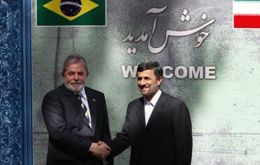
Brazilian president Dilma Rousseff and her predecessor Lula da Silva will be meeting this week for an international event in Portugal, just a few days after the new government abandoned a pro-dialogue with Iran position for a more neutral stance.
-
Monday, March 28th 2011 - 01:09 UTC
Brazil only country that retains 1979 Amnesty law dictated by the military

Contrary to the rest of Latin American countries, Brazil is the only where an amnesty law sanctioned by the military dictatorship in 1979 remains effective, ignoring a ruling from the Inter American Court of Human Rights, according to jurist Helio Bicudo.
-
Saturday, March 26th 2011 - 08:57 UTC
Brazil expected to raise benchmark interest rate as inflation “worsens”
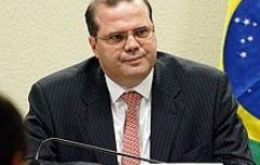
Brazilian Central bank President Alexandre Tombini admitted inflation forecasts may “worsen”. Consumer prices in the 12 months through mid-March rose 6.13%, the biggest jump in more than two years.
-
Saturday, March 26th 2011 - 08:53 UTC
WTO rules US is illegally taxing imported Brazilian frozen orange juice

The World Trade Organization ruled Friday that the United States is illegally taxing about 2 billion US dollars a year of imported Brazilian frozen orange juice.
-
Saturday, March 26th 2011 - 08:20 UTC
Brazil’s UN vote on Iran marks first great difference between Dilma and Lula da Silva
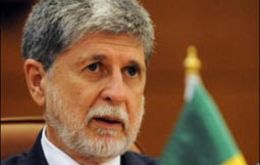
Brazil’s vote in the UN Human Rights Council in support of a rapporteur to monitor human rights in Iran, proposed by the US, signals the first great divergence in foreign policy between the current administration of President Dilma Rousseff and her predecessor and mentor Lula da Silva.
-
Friday, March 25th 2011 - 01:14 UTC
Brazilian government wants to sack CEO of the country’s largest corporation
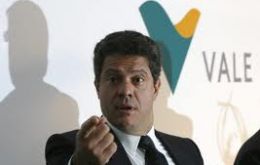
Brazilian government is facing a political backlash over its apparent efforts to force out the head of mining giant Vale, the world’s largest iron ore miner. Opposition leaders on Thursday demanded Finance Minister Guido Mantega explain reports he asked a shareholder of Vale to help seek a replacement for CEO Roger Agnelli.
-
Thursday, March 24th 2011 - 18:05 UTC
US must be more pro-active if it wants access to Brazilian oil, says Petrobras
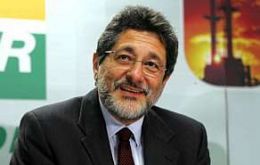
The United States must pay more importance to its strategic alliance with Brazil if it really wants to benefit from Petrobras’ recently discovered deep-water oil and natural gas reserves in the Atlantic Ocean, the company’s CEO, Jose Sergio Gabrielli, said.
-
Wednesday, March 23rd 2011 - 02:44 UTC
Brazil reiterates significance of Mercosur and strategic relation with Argentina

Brazil reaffirmed the significance of Mercosur for President Dilma Rousseff administration’s foreign policy and underlined the strategic relation with Argentina, Brazil’s main associate in the trade block.
-
Tuesday, March 22nd 2011 - 22:17 UTC
Brazilian president conditions pending visit to Paraguay
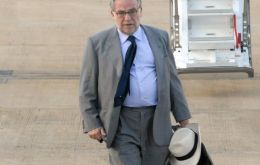
President Dilma Rousseff will not be visiting Paraguay until the Brazilian Congress approves the Itaipú reversal notes which establish a greater compensation for surplus power purchased from Paraguay by Latin America’s energy hungry largest economy.
-
Monday, March 21st 2011 - 21:52 UTC
US Export-Import bank loans Brazil 3 billion USD for oil and World Cup
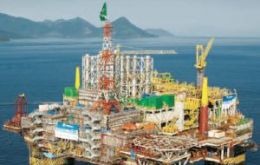
The US government's export credit agency has authorized $3 billion in financing for Brazil, including 2 billion US dollars for the Brazilian government-managed oil company Petrobras.
